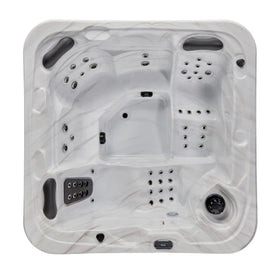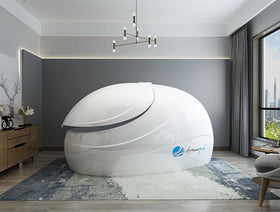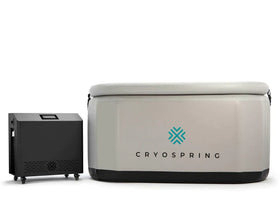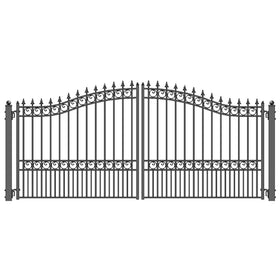Enhanced Athletic Performance and Faster Recovery
Reduce inflammation, lower muscle soreness and improve physical performance.
A meta-analysis of cold-water immersion effects on recovery found that cold exposure can be a highly effective recovery tool after high-intensity exercise or endurance training. Short interval (< 5 mins), cold water immersion demonstrated positive outcomes for muscle power, perceived recovery, and decreased muscle soreness (in part due to a reduction in circulating creatine kinases).
NOTE: Cold water immersion can limit some of the gains in hypertrophy, strength or endurance if done in the 4 hours or so after training. It’s better to wait 6 to 8 or more hours until after training, or do it before training UNLESS your goal is simply to recover without adaptation (for instance, when in a competition mode and not trying to get better, stronger, etc.)
Source: Huberman Lab
Increased Focus and Energy
Own the day.
Deliberate cold exposure causes a significant release of epinephrine (aka adrenaline) and norepinephrine (aka noradrenaline) in the brain and body. These neurochemicals make us feel alert and can make us feel agitated and as if we need to move or vocalize during the cold exposure. Cold causes their levels to stay elevated for some time and their ongoing effect after the exposure is to increase your level of energy and focus, which can be applied to other mental and/or physical activities.
Source: Huberman Lab
Greater Stress Resilience
Develop a healthier stress response.
By forcing yourself to embrace the stress of cold exposure as a meaningful self-directed challenge (i.e., stressor), you exert what is called ‘top-down control’ over deeper brain centers that regulate reflexive states. This top-down control process involves your prefrontal cortex – an area of your brain involved in planning and suppressing impulsivity. That ‘top-down’ control is the basis of what people refer to when they talk about “resilience and grit.” Importantly, it is a skill that carries over to situations outside of the deliberate cold environment, allowing you to cope better and maintain a calm, clear mind when confronted with real-world stressors. In other words, deliberate cold exposure is great training for the mind.
Source: Huberman Lab
Improved Mood
Have more awesome days.
While not true of every stress, cold exposure causes the prolonged release of dopamine. Dopamine is a powerful molecule capable of elevating mood, enhancing focus, attention, goal-directed behavior, etc.
Listen to Episode #39 of the Huberman Lab podcast to learn more about dopamine’s role in the body.
Source: Huberman Lab
Boosted Metabolism
Burn more calories.
In the short-term, cold exposure increases metabolism as the body has to burn calories to increase core body temperature. The total calories burned from the cold exposure are not that significant. However, the conversion of white fat (energy storage) to beige or brown fat (which are highly metabolically active) can be beneficial for:
Allowing people to feel more comfortable in the cold (i.e., cold adaptation)
Triggering further and more sustained increases in metabolism
Of course, calories in (consumed) versus calories out (metabolized) or “CICO” governs whether you gain, lose, or maintain weight. There is no escaping the laws of thermodynamics.
Source: Huberman Lab






























